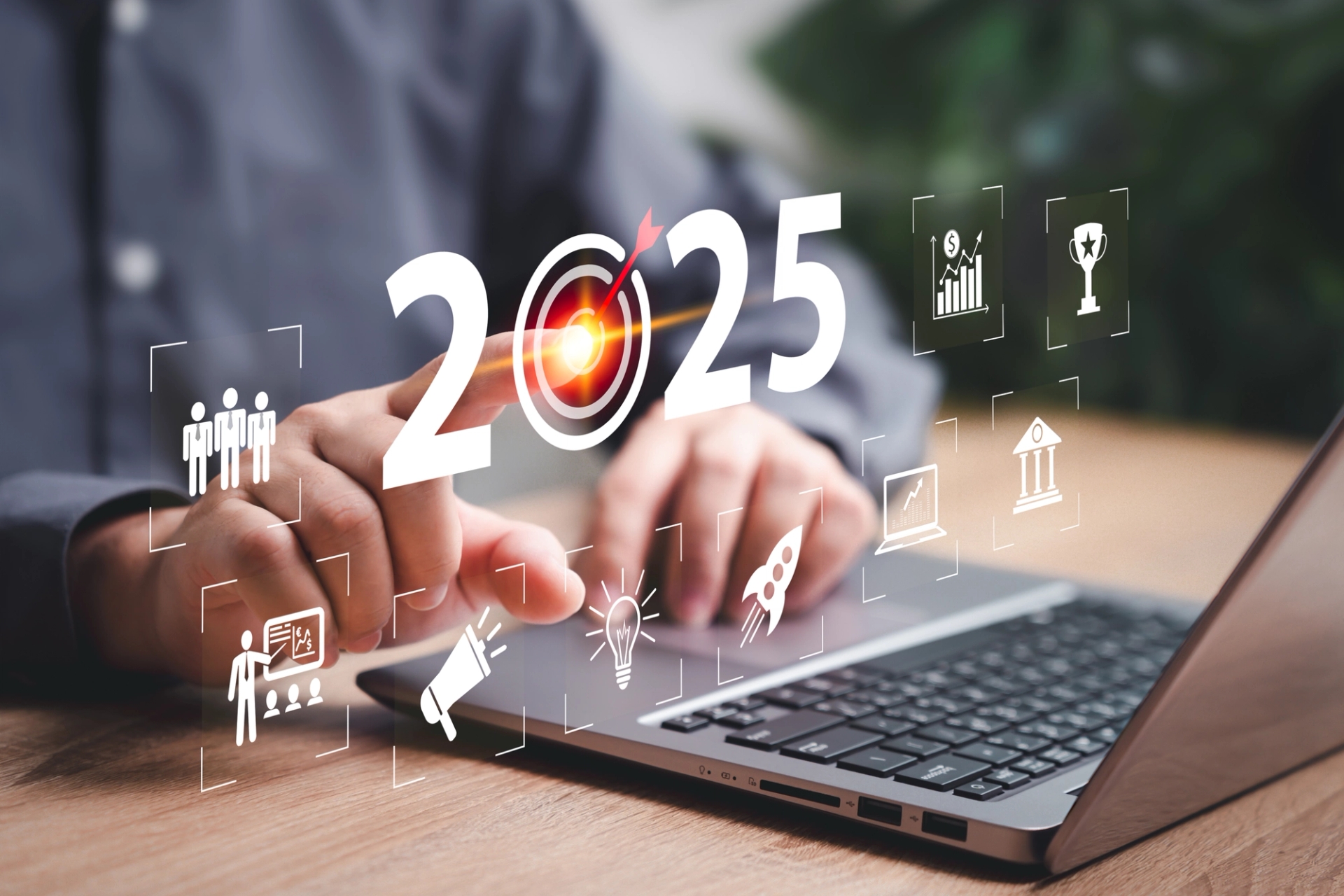The Future of Enterprise Events: Trends to Watch
In this blog, we explore key trends shaping the future of enterprise events, including all-in-one event management solutions, AI integration, virtual and hybrid events, personalized experiences, sustainability, and security. These innovations are transforming how events are planned, executed, and analyzed, offering new opportunities for engagement, efficiency, and impact.

The landscape of enterprise events is rapidly evolving, driven by technological advancements, shifting attendee expectations, and the need for more efficient and impactful event management. As businesses continue to rely on events as a key strategy for engagement, marketing, and networking, it's crucial to stay ahead of the trends shaping the future of enterprise events. Below, we explore the key trends to watch in the coming years, focusing on innovations in Event management software, All-in-one event management solutions, and related tools.
1. The Rise of All-In-One Event Management Solutions
One of the most significant trends is the growing preference for all-in-one event management solutions. As enterprises host increasingly complex events, the need for a streamlined platform that integrates various functions—such as event planning software, event registration software, and event ticketing systems—has become more critical. These comprehensive platforms eliminate the need to juggle multiple tools, reducing the risk of errors and saving valuable time. By centralizing event operations, businesses can ensure consistency, improve efficiency, and enhance the overall event experience.
2. The Integration of AI and Machine Learning
Artificial Intelligence (AI) and Machine Learning (ML) are revolutionizing the way events are managed. From event attendee management to event analytics software, AI-driven tools can provide deeper insights into attendee behavior, predict trends, and automate routine tasks. For instance, AI-powered event scheduling software can suggest optimal times for sessions based on attendee preferences, while ML algorithms can personalize content recommendations, enhancing engagement. As AI technology continues to evolve, its integration into event management software will likely become more sophisticated, offering even more innovative solutions for enterprise events.
3. Virtual and Hybrid Events Becoming the Norm
The global pandemic accelerated the adoption of virtual event platforms, and this trend is here to stay. Enterprises have realized the potential of reaching a global audience without the constraints of physical location. Moving forward, virtual and hybrid events will continue to dominate, with a focus on improving the digital experience. Innovations in event management tools will cater to both in-person and remote attendees, ensuring seamless interaction and engagement across all formats. The rise of event management apps that facilitate hybrid participation is also expected to grow, offering features like live polling, Q&A sessions, and real-time networking opportunities.
4. Enhanced Data Analytics for Better Decision Making
Data has always been a crucial component of event management, but the future will see even more advanced event analytics software playing a pivotal role. Enterprises will leverage data not only to measure event success but also to make informed decisions in real-time. Advanced analytics will enable event planners to track attendee engagement, identify trends, and adjust strategies on the fly. The integration of predictive analytics into conference management software will allow businesses to anticipate attendee needs, optimize resources, and enhance the overall event experience.
5. Personalization at Scale
As events grow larger and more complex, the ability to personalize experiences at scale will become a key differentiator. Leveraging event marketing software and AI-driven insights, enterprises will be able to tailor content, communications, and interactions to individual attendee preferences. This trend will extend to event registration software, where personalized registration paths can be created based on attendee profiles, and event ticketing systems that offer dynamic pricing based on attendee behavior. The future of enterprise events will be characterized by highly customized experiences that cater to the unique needs and interests of each participant.
6. Sustainability and Green Event Planning
Sustainability is no longer a buzzword—it's a necessity. As enterprises increasingly prioritize environmental responsibility, event planning software will need to incorporate tools and features that support green event planning. From reducing paper waste with event website builders and event check-in apps to minimizing carbon footprints through virtual attendance options, sustainability will be a key consideration in the future of enterprise events. Event management solutions will likely offer more eco-friendly options, helping businesses meet their sustainability goals while still delivering impactful events.
7. Security and Compliance in a Digital-First World
With the rise of virtual and hybrid events, ensuring robust security and compliance is more important than ever. Enterprise event software will need to prioritize data protection, particularly in industries with strict regulatory requirements. Future event management tools will likely include advanced encryption, secure access controls, and compliance monitoring features to protect sensitive information. As cyber threats continue to evolve, enterprises will demand even more stringent security measures from their event management software providers, ensuring that both attendee data and event content are safeguarded.
8. The Growth of Event Management Apps
Mobile technology continues to shape the future of enterprise events, with event management apps becoming an indispensable tool for event planners and attendees alike. These apps offer a range of functionalities, from event scheduling and event check-in to networking and feedback collection. As the demand for mobile-first solutions grows, we can expect to see more advanced features integrated into these apps, such as augmented reality (AR) experiences, real-time translation services, and AI-driven chatbots to assist attendees throughout the event.
9. The Evolution of Event Marketing Strategies
Event marketing is evolving alongside event technology. With the rise of digital platforms, event marketing software is becoming more sophisticated, enabling businesses to reach and engage their target audience in new and innovative ways. Social media integration, personalized email campaigns, and content marketing are becoming standard practices, with event management software offering tools to streamline these efforts. As competition for attendee attention intensifies, enterprises will need to adopt more creative and data-driven marketing strategies to stand out and drive event participation.
10. The Emergence of Smart Venues
The future of enterprise events will also be shaped by the rise of smart venues—physical locations equipped with cutting-edge technology to enhance the event experience. These venues will integrate with event management software to offer real-time analytics, seamless connectivity, and interactive features for attendees. From IoT-enabled devices that track foot traffic to AI-powered systems that manage lighting and climate control, smart venues will create a more engaging and efficient environment for enterprise events. This trend will further blur the lines between physical and digital experiences, offering new possibilities for hybrid events.
11. Cross-Platform Integrations
In the future, event management software will need to integrate seamlessly with other enterprise tools, such as CRM systems, marketing automation platforms, and ERP solutions. This cross-platform integration will enable a more holistic approach to event management, where data flows effortlessly between systems, enhancing decision-making and improving efficiency. For example, integrating event attendee management tools with a CRM system can provide deeper insights into attendee behavior and preferences, allowing for more targeted follow-up campaigns. As businesses seek to optimize their operations, the ability to connect and synchronize various tools will become a key requirement for enterprise event software.
12. Real-Time Engagement and Networking
The future of enterprise events will be defined by the ability to facilitate real-time engagement and networking among attendees. Whether through virtual event platforms or in-person gatherings, the focus will be on creating opportunities for meaningful interactions. Advanced event management tools will offer features like AI-powered matchmaking, live chat, and instant feedback options to enhance networking experiences. The use of event management apps will further support real-time engagement, enabling attendees to connect, share insights, and collaborate on the go.
13. The Role of Gamification in Events
Gamification is emerging as a powerful tool to boost attendee engagement and participation in enterprise events. By incorporating game-like elements into event management software, such as leaderboards, challenges, and rewards, businesses can create a more interactive and enjoyable experience for attendees. This trend is particularly relevant for conference management software, where gamification can be used to incentivize learning, networking, and content consumption. As the competition for attendee attention grows, gamification will play an increasingly important role in driving engagement and achieving event objectives.
14. The Expansion of Event Content Libraries
As enterprises host more events, the demand for content libraries that store and manage event materials will increase. Event management software will need to offer robust content management features, allowing businesses to archive sessions, presentations, and other event assets for future use. These content libraries will not only serve as a resource for attendees but also as a valuable tool for post-event marketing and lead generation. By providing on-demand access to event content, businesses can extend the life of their events and continue to engage their audience long after the event has ended.
The Growing Importance of Post-Event Analysis
Finally, the future of enterprise events will place a greater emphasis on post-event analysis. Advanced event analytics software will enable businesses to measure the success of their events with greater precision, providing insights into attendee engagement, ROI, and overall impact. This data-driven approach will allow enterprises to continuously refine their event strategies, making informed decisions about future events. By leveraging post-event analytics, businesses can ensure that their events not only meet but exceed their objectives, driving growth and success in an increasingly competitive landscape.
The future of enterprise events is both exciting and challenging, with a wealth of opportunities for innovation and growth. As technology continues to advance, businesses will need to stay ahead of the trends shaping the industry to deliver impactful, engaging, and efficient events. From the rise of all-in-one event management solutions to the integration of AI, the trends outlined above will play a crucial role in defining the future of enterprise events. By embracing these trends and leveraging the latest event management tools, enterprises can ensure their events remain at the forefront of the industry, delivering exceptional experiences for attendees and driving business success.
More Event Management











